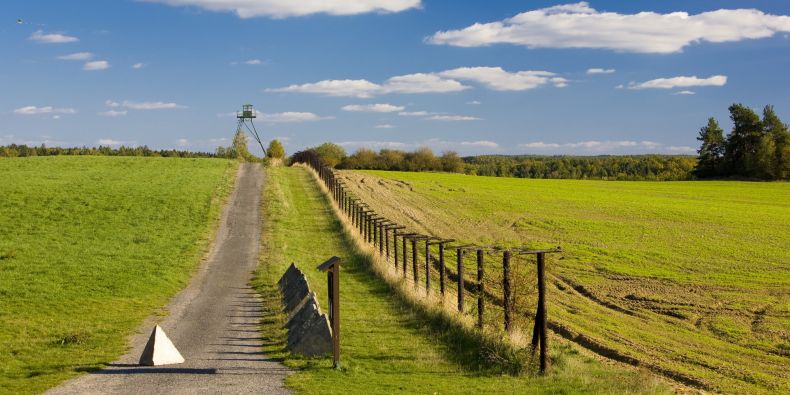When you ask those who live in southern Moravia what they think of when they think about Austria, the overwhelming majority says “Vienna”. Next come “neighbour”, “standard of living”, and “employment”. When Austrians think of the Czech Republic, they think of shopping deals, Prague, and beer. These are among the results of a survey conducted this year by geography students at the MU Faculty of Science together with their colleagues from the University of Vienna.
The project “The South Moravian-Lower Austria region as an example of the transformation of border areas” aimed to discover to what extent the border regions are taking advantage of the new development opportunities that opened up after the fall of the Iron Curtain.
“There are three key milestones in the development of the border areas: the fall of the Iron Curtain, the accession of the Czech Republic to the EU and the country’s accession to the Schengen Area,” says Milan Jeřábek from the Department of Geography, the leader of the research project. “Based on the survey, we can say that the first of these events was definitely the most important one.”
As a part of the project, mixed Czech-Austrian groups of students surveyed people living in the Břeclav and Znojmo districts on the Czech side and in the Hollabrunn and Mistelbach districts on the Austrian side about their views on the border area and cooperation with their neighbours. They collected responses from 312 inhabitants of South Moravia and 446 inhabitants of Lower Austria. Their lecturers then asked ten Czech and ten Austrian mayors about development in the area.
The survey showed that people on both sides of the border are very happy about changes in tourism, infrastructure development, and communication. However, there were areas in which they did not agree. For example, while the Austrians have a rather negative view on transportation, Czechs see it as a positive aspect. The opinion of both sides also differs when it comes to changes in the job market.
As regards transportation, the locals regret the lack of a motorway between Brno and Vienna. They would also like to see more border crossing points and the closure of some infrastructure gaps, such as railway tracks where several hundred metres are still needed to connect the two sides of the border.
“Both sides have similar opinions of their neighbours from the other country. The Czechs and the Austrians see each other as friendly, uncomplicated, and relatively trustworthy,” says Jeřábek. However, he also adds that the Austrians often see the Czechs as a part of the Eastern Bloc and occasionally do not view them as equal partners. They think that Czechs are less well-off and less successful than themselves. The survey also highlights an important barrier with a long history: the language barrier. It was mentioned by 51 respondents on the Czech side of the border and 20% on the Austrian side.
Student Ondra Macík offers his observations on the survey results: “Our survey showed that those who don’t speak German only rarely go to Austria. Moreover, people who cannot communicate in either German or English are more likely to have negative views on mutual cooperation.”
Survey results from both sides of the border showed that people do not know much about cross-border projects and often do not participate in them. The term “Pomoraví Euroregion” used to describe this area is almost unknown to the people who live there.
According to the researchers, there are also significant differences in the cross-border activities of individual municipalities. A lot depends on their size, but also on language proficiency, which can make cooperation much easier.
“In some municipalities, people in the local government speak fluent German, are in touch with the neighbouring Austrian municipality, and work with them during the whole year in a number of areas, including the problems and concerns of the locals. Then there are municipalities with more or less formal relationships, where the municipal councils may for example hold a common meeting once a year,” says Jeřábek about the cooperation between municipalities.
He also adds that the survey interviews showed that mayors would like to focus on cooperation in the areas of tourism and the job market.
In Jeřábek’s opinion, cross-border cooperation with Austria is rather less intensive compared to cooperation with our other neighbours. Border regions have long been his research subject and in his previous position, he focused on Czech-Saxony cooperation. Jeřábek says that cooperation in that region is more successful, adding, “There are many reasons behind that. For example, some proportion of Austrians still struggle with the dissolution of Austria-Hungary, the Beneš decrees [presidential decrees that formed the legal basis for the expulsion of Germans from Czechoslovakia after 1945], and the Temelín nuclear power plant.”
